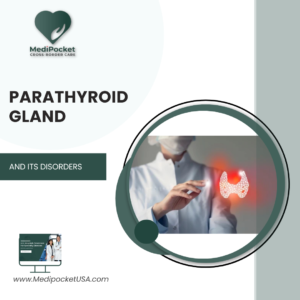Alka Yagnik’s Diagnosis
National Award-winning singer Alka Yagnik, a name synonymous with melodious tunes and soulful renditions, recently took to Instagram to share a poignant and alarming health update. The 58-year-old artist revealed her struggle with sensorineural deafness, a condition that significantly impacts one’s ability to hear faint sounds, comprehend speech, and differentiate between various sounds.

In her candid post, Yagnik recounted the shocking moment she noticed her hearing loss. “As I walked out of a flight, I suddenly felt I was not able to hear anything,” she wrote, describing the sudden onset of her condition following a routine flight. This experience has not only altered her personal and professional life but also serves as a critical reminder of the importance of hearing health, especially for those constantly exposed to loud environments.
Yagnik used this platform to warn her “fans and young colleagues” about the dangers associated with prolonged exposure to loud music and the extensive use of headphones. Her story underscores a crucial public health message about safeguarding our auditory senses in an increasingly noisy world.
What is Sensorineural deafness?
Sensorineural deafness, also known as sensorineural hearing loss (SNHL), is a type of hearing impairment resulting from damage to the inner ear or the nerve pathways from the inner ear to the brain. This condition can manifest in varying degrees of severity, from mild hearing loss to complete deafness.
Causes and Risk Factors
Several factors can contribute to sensorineural deafness:
- Aging (Presbycusis): Age-related hearing loss is a common cause of SNHL, typically affecting individuals over the age of 65.
- Noise Exposure: Prolonged exposure to loud noises, whether from music, industrial environments, or recreational activities, can damage the delicate hair cells in the inner ear.
- Ototoxic Medications: Certain medications, known for their toxic effects on the ear, can lead to hearing loss. These include some antibiotics and chemotherapy drugs.
- Genetic Factors: Inherited conditions and genetic mutations can predispose individuals to sensorineural deafness.
- Head Trauma: Severe head injuries can damage the inner ear structures or auditory nerve.
- Illnesses: Diseases such as Meniere’s disease, acoustic neuroma, and viral infections like mumps or measles can affect hearing.
Symptoms
The symptoms of sensorineural deafness can vary widely but generally include:
- Difficulty hearing faint sounds
- Trouble understanding speech, especially in noisy environments
- Distortion or muffling of sounds
- Tinnitus (ringing in the ears)
Diagnosis and Treatment
Diagnosing sensorineural deafness typically involves a comprehensive hearing evaluation by an audiologist. This may include:
- Audiometric Tests: These tests measure the ability to hear various pitches and volumes.
- Imaging Studies: MRI or CT scans may be used to examine the structures of the ear and brain.
- Otoacoustic Emissions (OAE): This test assesses the function of the hair cells in the inner ear.
Treatment options depend on the severity and cause of the hearing loss:
- Hearing Aids: These electronic devices amplify sounds and are suitable for mild to moderate hearing loss.
- Cochlear Implants: For severe cases, cochlear implants can bypass damaged inner ear structures and directly stimulate the auditory nerve.
- Medication and Surgery: In cases where the hearing loss is due to an underlying condition like an infection or a tumor, appropriate medical or surgical treatment is necessary.
Preventive Measures
Preventing sensorineural deafness involves proactive steps to protect hearing:
- Limit Exposure to Loud Noise: Use ear protection in noisy environments and keep the volume at safe levels when using headphones.
- Regular Hearing Check-Ups: Periodic hearing assessments can detect early signs of hearing loss.
- Healthy Lifestyle: Maintaining good cardiovascular health can also benefit auditory health, as blood flow is crucial to the ear’s function.
Conclusion
Alka Yagnik’s experience with sensorineural deafness serves as a powerful reminder of the importance of hearing health. Her story highlights the need for greater awareness and preventive measures, especially in today’s noisy world. By understanding the causes, symptoms, and treatments of sensorineural deafness, we can better protect our hearing and address any issues promptly.
MediPocket USA is here to help you access the world-class expertise and treatment for such rare diseases such as sensorineural deafness. The United States is the home to prestigious hospitals that cater to the patients around the world. Contact us for premium care from the USA.








